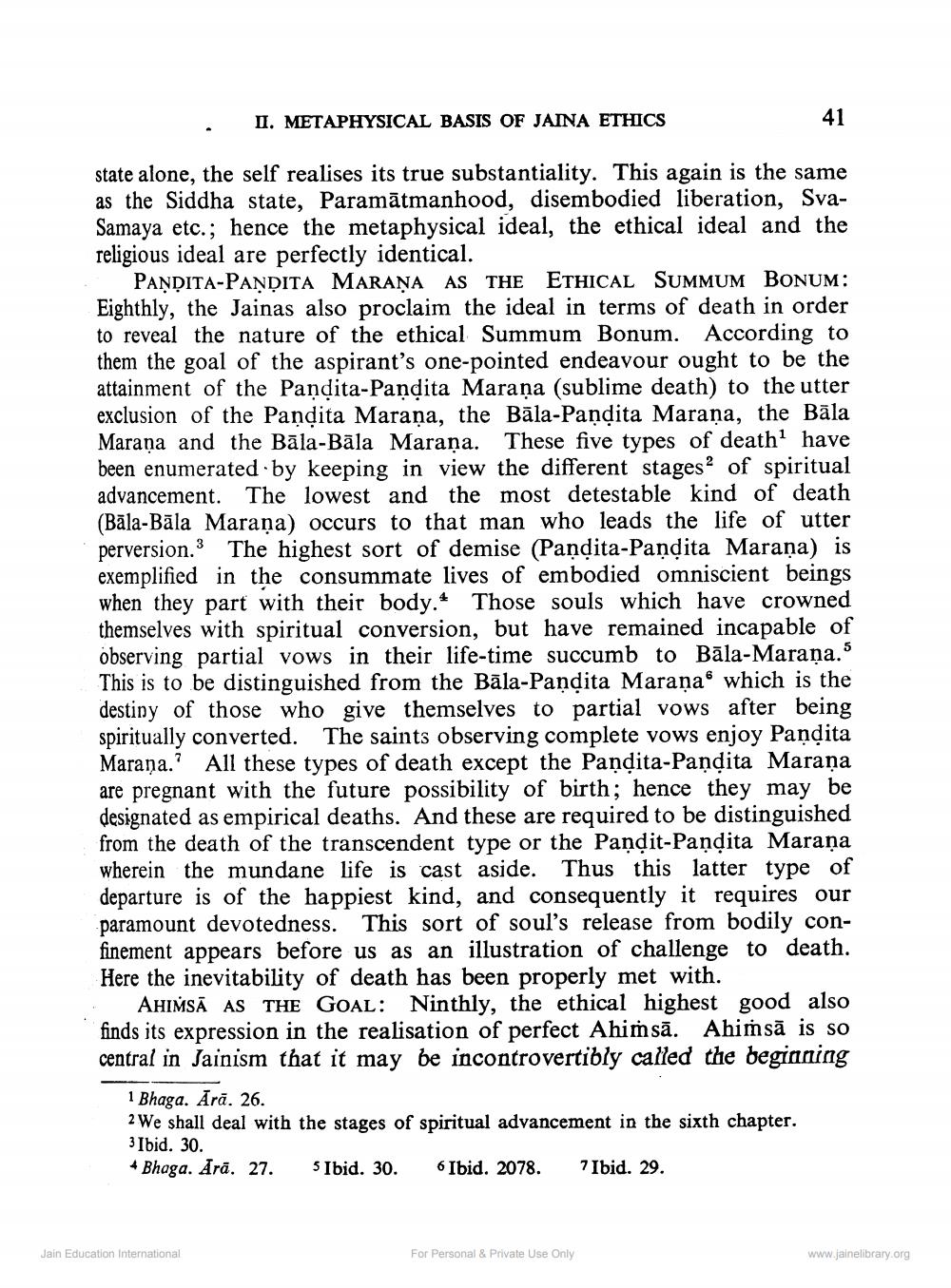________________
II. METAPHYSICAL BASIS OF JAINA ETHICS
41
state alone, the self realises its true substantiality. This again is the same as the Siddha state, Paramātmanhood, disembodied liberation, SvaSamaya etc.; hence the metaphysical ideal, the ethical ideal and the religious ideal are perfectly identical. LAPANDITA-PANDITA MARANA AS THE ETHICAL SUMMUM BONUM:
Eighthly, the Jainas also proclaim the ideal in terms of death in order to reveal the nature of the ethical Summum Bonum. According to them the goal of the aspirant's one-pointed endeavour ought to be the attainment of the Pandita-Pandita Marana (sublime death) to the utter exclusion of the Pandita Marana, the Bāla-Pandita Marana, the Bāla Marana and the Bāla-Bäla Marana. These five types of death have been enumerated by keeping in view the different stages of spiritual advancement. The lowest and the most detestable kind of death (Bāla-Bāla Marana) occurs to that man who leads the life of utter perversion. The highest sort of demise (Pandita-Pandita Marana) is exemplified in the consummate lives of embodied omniscient beings when they part with their body. Those souls which have crowned themselves with spiritual conversion, but have remained incapable of observing partial vows in their life-time succumb to Bāla-Marana. This is to be distinguished from the Bāla-Pandita Maranae which is the destiny of those who give themselves to partial vows after being spiritually converted. The saints observing complete vows enjoy Pandita Maraņa.? All these types of death except the Pandita-Pandita Marana are pregnant with the future possibility of birth; hence they may be designated as empirical deaths. And these are required to be distinguished from the death of the transcendent type or the Pandit-Pandita Marana wherein the mundane life is cast aside. Thus this latter type of departure is of the happiest kind, and consequently it requires our paramount devotedness. This sort of soul's release from bodily confinement appears before us as an illustration of challenge to death. Here the inevitability of death has been properly met with.
AHISĀ AS THE GOAL: Ninthly, the ethical highest good also finds its expression in the realisation of perfect Ahimsā. Ahimsā is so central in Jainism that it may be incontrovertibly called the beginning
1 Bhaga. Ārā. 26. 2 We shall deal with the stages of spiritual advancement in the sixth chapter. 3 Ibid. 30. * Bhaga. Arā. 27. 5 Ibid. 30. Ibid. 2078. 7 Ibid. 29.
Jain Education International
For Personal & Private Use Only
www.jainelibrary.org




